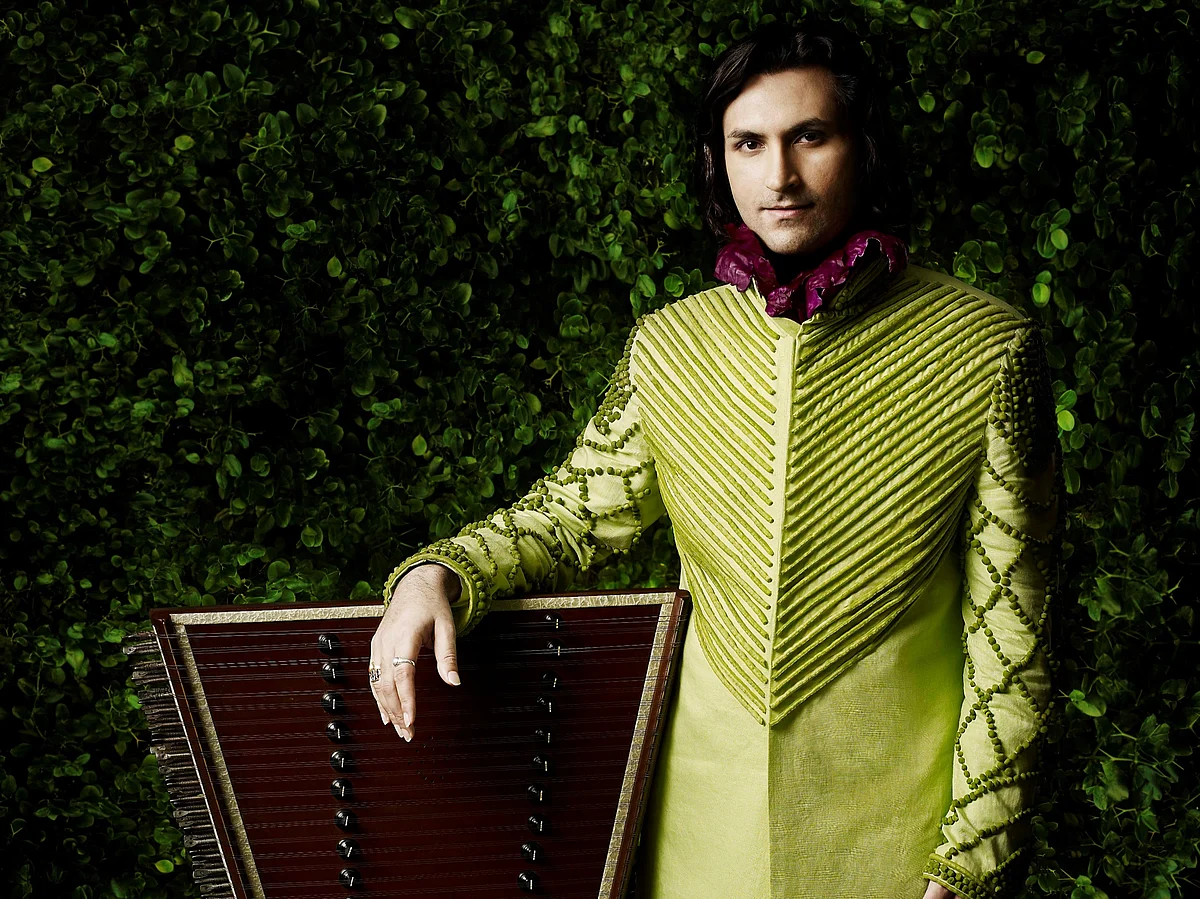Inside Rahul Sharma’s journey ahead of Dubai concert: Santoor, spirituality, and Amitabh Bachchan's charm
As he takes to the stage on Sunday, Santoor maestro talks about staying relevant and more

The santoor may be steeped in classical tradition, but Indian classical musician Rahul Sharma is redefining what it means to be a modern-day maestro. From collaborating with Grammy winners and composing for Bollywood legends to jamming with his 10-year-old son on futuristic tracks, Sharma proves that an ancient instrument can still make waves in today’s ever-evolving music landscape.
In this exclusive interview, the globally celebrated artist talks legacy, rebellion, and why the santoor doesn’t need to shout to be heard.
“Playing an instrument that brings inner calm and peace, and travelling the world performing at the most prestigious festivals — that’s being relevant and cool," said Sharma in an interview ahead of his concert in Dubai this weekend.
The santoor has always had this ethereal, meditative quality — how do you keep it cool and relevant in a world chasing AI-generated beats?
Ethereal, meditative and serene is already cool — I don’t need to make a conscious effort. Playing an instrument that brings inner calm and peace, and travelling the world performing at the most prestigious festivals — that’s being relevant and cool.
Do you ever feel like the santoor is misunderstood or underrated in the global music scene — and are you out here reclaiming space for it?
The santoor is found all over the world in different versions. The word “santoor” came about due to Persian influence in early times. It was originally called Shatatantri Veena, meaning a 100-stringed instrument. It travelled with the gypsies — known as santoori in Greece, hackbrett in Germany, and cymbalom in Romania. Globally, several of my albums — with Grammy winners such as Kenny G, Deep Forest, and Richard Clayderman — have topped the US Billboard charts. With more than 70 albums, it has found a global sound
Your fusion work blends classical with contemporary — do you think younger audiences are finally ready to vibe with ragas at a rave?
My album Deep India with Grammy-winning electronica group Deep Forest showcases Indian folk from different states, combined with an electro vibe. It’s often played at rave festivals and Womad too.
In a time where everything is “content,” how do you keep your music sacred — or do you even try to?
When I’m performing a pure classical concert, I love the purity of a raga. Different permutations and combinations of the scale create a similar effect as a painter bringing a canvas to life. Ragas come from Vedic times, and maintaining that purity keeps it sacred, according to the genre.
Is it rebellious to stick to classical roots today, when so much of the industry is chasing quick hooks and trending reels?
I’ve composed for films — including for Yash Chopra — and was fortunate to have Lata Mangeshkar sing my compositions. My recent song Jai Hanuman was sung by superstar Amitabh Bachchan with my santoor as well. Music is very diverse, and being a composer helps me adapt to all genres.
You come from musical royalty — does the weight of legacy ever get heavy, or have you found a way to remix it on your own terms?
Legacy continues. What my father and guru, Pt. Shivkumar Sharma, did for the santoor cannot be captured in an interview. But his work continues through me and others. Now, even the new generation — my 10-year-old son Abhinav — is learning. So the legacy lives on.
How do you navigate being a modern artist while carrying forward a deeply traditional instrument and lineage?
One day, I’m invited to perform by Prime Minister Narendra Modi at a special event where he’s hosting the Duke and Duchess of York, William and Kate — and he asks me to play the Beatles on santoor. A few days later, I’m playing in New Zealand at the World of Music, Arts and Dance open-air festival for thousands of people enjoying an Indo-electro ambience. It’s all about adapting and playing diverse roles — one day modern, another day conservative and pure as Indian ragas.
Has your relationship with the santoor evolved as you’ve grown personally and spiritually?
As an artist, I’ve been performing for almost 30 years. The best times are when you're deep in practice, lost, and feeling elevated. Music is a universal language and helps heal and comfort — especially Indian classical. It creates an aura where the audience feels bliss.
What’s something about your father, Shivkumar Sharma, that the world may not know — but that shaped you as both a man and a musician?
He was spiritual, disciplined and determined. I was fortunate to have a guru in him — but he also had a great sense of humour and was fond of different cuisines. In general, he had a progressive mind.
What’s one surprising artist you’d love to collaborate with — someone totally outside the Indian classical box?
Sting, David Gilmour, Bono.
Do you have a guilty-pleasure playlist we’d be surprised to hear you jamming to?
I love Pink Floyd — Delicate Sound of Thunder, The Beatles, and Sting. My album The Rebel was inspired by rock music — I wanted the santoor to be part of the rock genre as well. Nothing guilty about it — I grew up listening to everything.
What’s the most Gen Z thing you’ve done lately — and did the santoor approve?
Playing a really cool new-age track with my 10-year-old son Abhinav in a music video — which was fun — and the santoor and the audience approved it. It was called Time Traveller 2.
Don’t Miss It:
Swaralaya with Rahul Sharma on the Santoor
When: April 27, Sunday
Tickets: Dh75 onwards
Time: 6:30pm
Contact: 0504295293 or log onto platinumlist.net
Network Links
GN StoreDownload our app
© Al Nisr Publishing LLC 2025. All rights reserved.